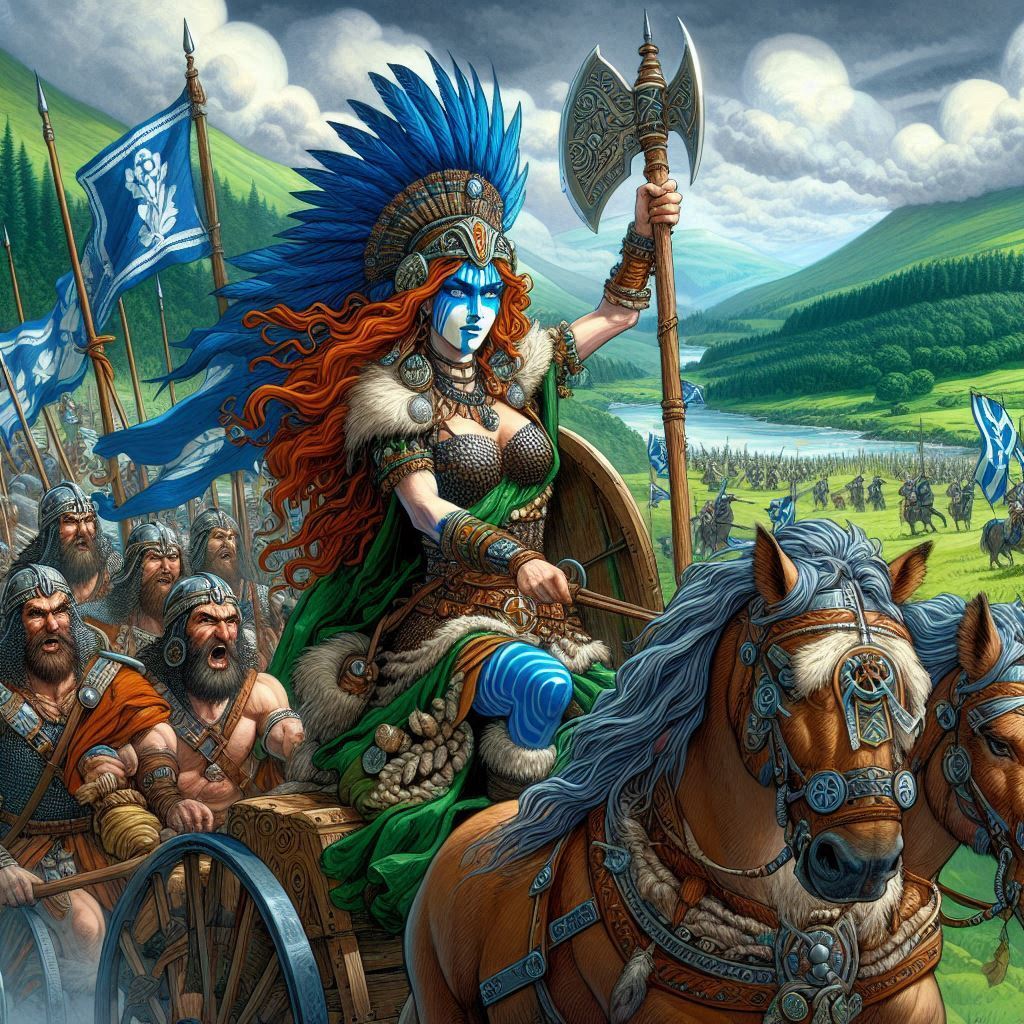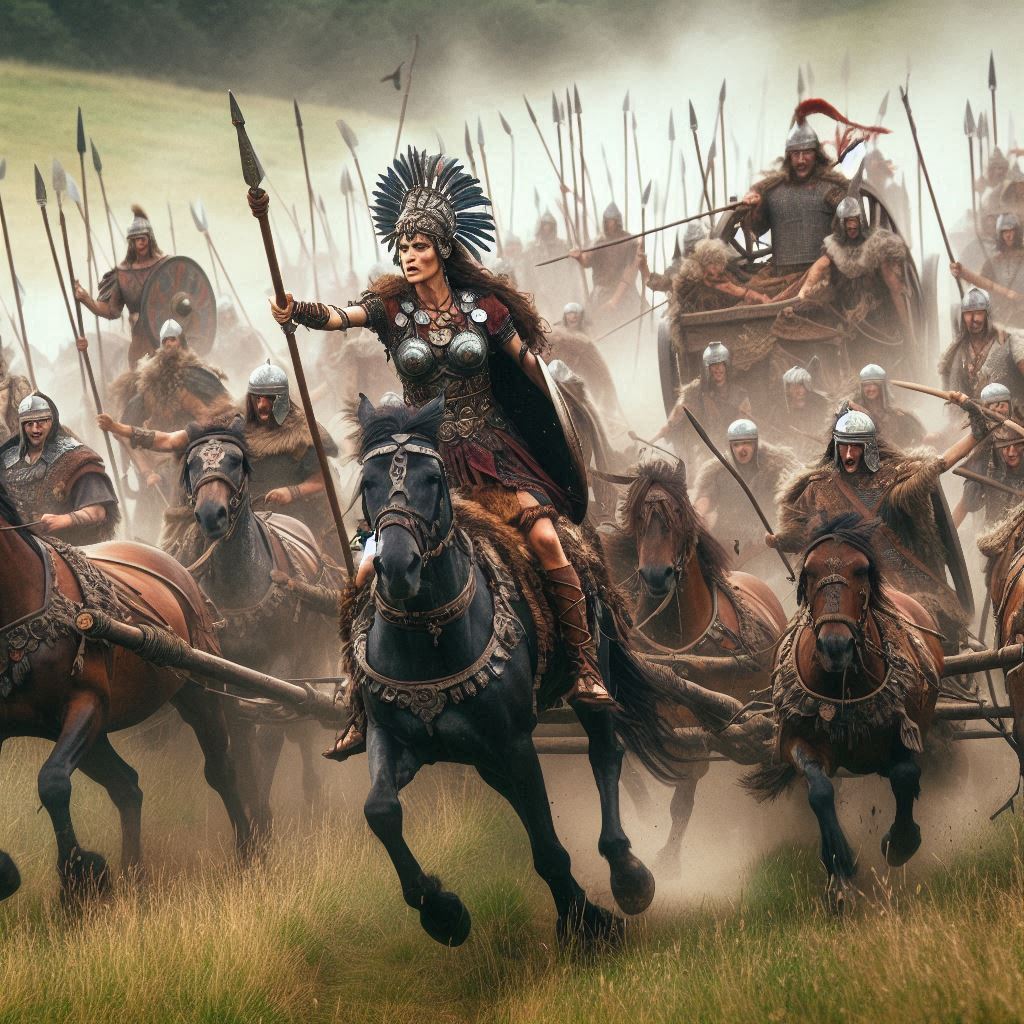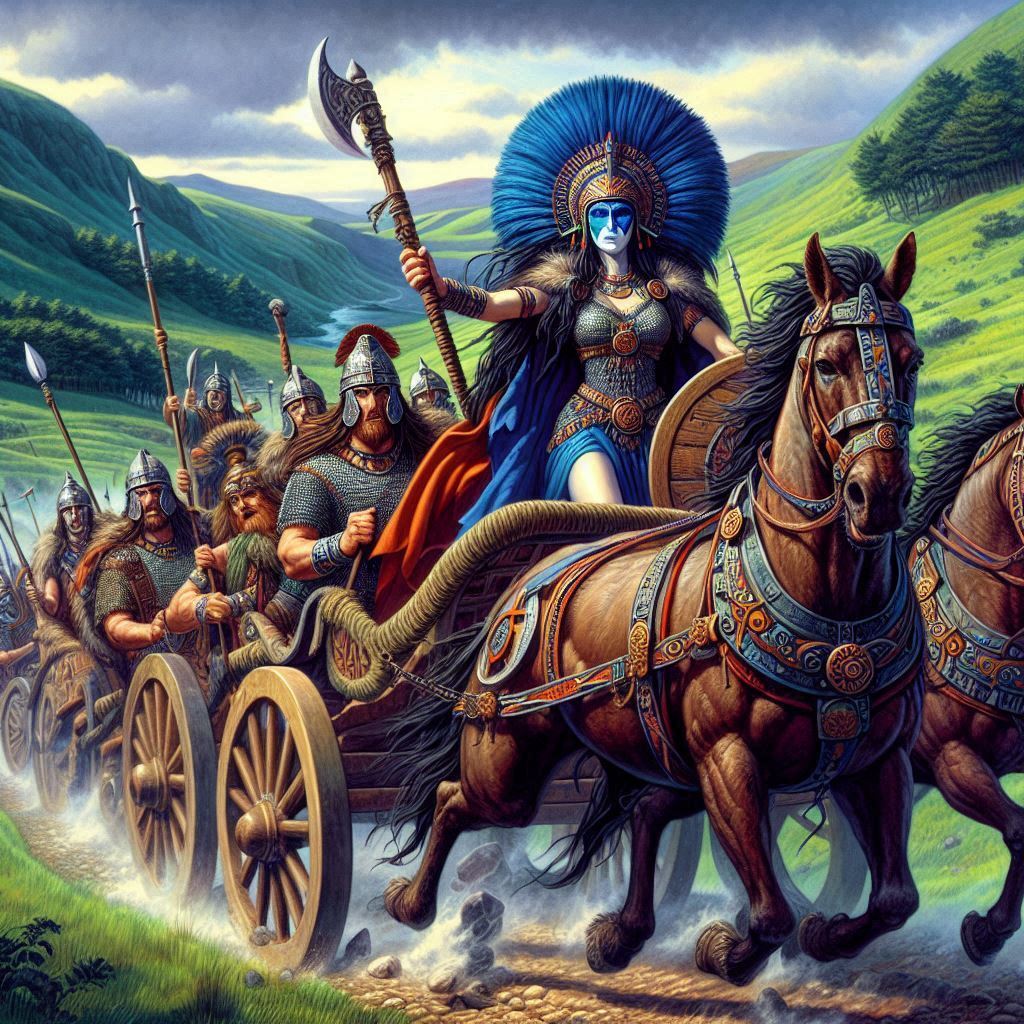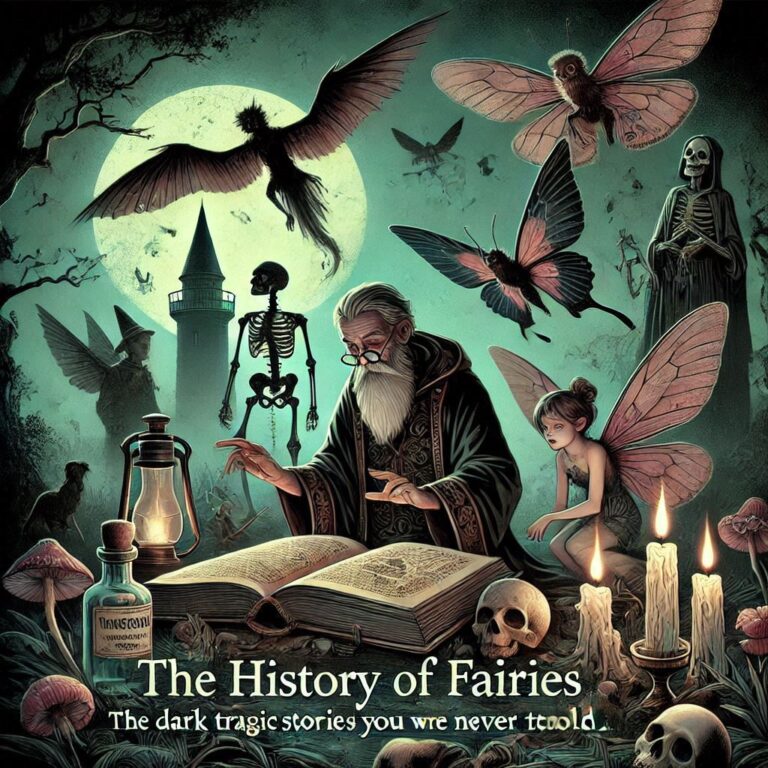Boudicca And The Great British Rebellion
Boudicca And The Great British Rebellion
Boudicca, also known as Boadicea, was a queen of the Iceni tribe, a Celtic people living in what is now East Anglia, England, during the Roman occupation of Britain in the first century AD. She is most famous for leading a major uprising against the occupying Roman forces, an event often referred to as the Great British Rebellion.
Boudicca And The Great British Rebellion
Early Life and Background
Boudicca was married to Prasutagus, the king of the Iceni tribe. Upon his death around AD 60-61, Prasutagus’s will left his kingdom jointly to his two daughters and the Roman Emperor. However, the Romans ignored the will, annexed the kingdom, flogged Boudicca, and raped her daughters. This brutal treatment incited Boudicca to rise in revolt.
The Rebellion

Boudicca’s rebellion began around AD 60-61, exploiting the absence of the Roman governor Gaius Suetonius Paulinus, who was campaigning in Wales. Boudicca united several tribes, including the Trinovantes, and led a force that sacked several Roman settlements. The most notable attacks were on Camulodunum (modern Colchester), Londinium (London), and Verulamium (St. Albans). These cities were burned to the ground, and it is estimated that around 70,000-80,000 Romans and Britons were killed during the rebellion.
Boudicca And The Great British Rebellion
Roman Response and Defeat

The Roman governor Suetonius Paulinus hurried back to confront the rebellion. Despite being heavily outnumbered, the disciplined Roman legions eventually defeated Boudicca’s forces in a decisive battle, the location of which is still uncertain but is believed to be somewhere in the West Midlands. Boudicca either poisoned herself to avoid capture or died of illness shortly after the defeat.
Legacy
Boudicca’s rebellion, though ultimately unsuccessful, is remembered as a symbol of resistance against oppression and tyranny. Her story has been romanticized and idealized over the centuries, making her a national heroine in British history. Monuments and statues, such as the one near Westminster Bridge in London, commemorate her fierce spirit and the dramatic stand she made against Roman rule. Boudicca remains an enduring figure of British folklore and a powerful symbol of the fight for justice and independence.



